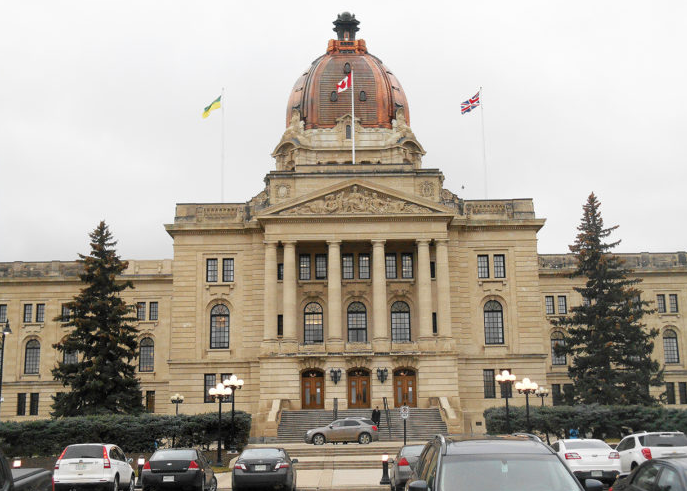
On Wednesday, May 3, the FutureNow event will bring undergraduate students from four of Saskatchewan’s major post-secondary institutions together to share their best research, scholarly, artistic, and applied work with Saskatchewan legislators.
Undergraduate students from the University of Saskatchewan (USask), the University of Regina (U of R), First Nations University (FNUniv) and Saskatchewan Polytechnic (Sask Polytech), are invited to the Legislative Building in Regina to present snapshots of their research work to MLAs.
“We are delighted to have such an amazing cross-section of students representing so many areas of inquiry, with excellence in research, scholarly, artistic and applied work,” Laura Zink, director of Research Acceleration and Strategic Initiatives in the USask Office of the Vice-President Research said in a release.
“It’s been great to work with colleagues from across Saskatchewan’s post-secondary institutions to build this prestigious event. We are excited and proud to bring some of Saskatchewan’s future leaders to meet the leaders of today.”
Many undergraduate students build research into their post-secondary education – through coursework, capstone projects, experiential and applied classes, honour’s degrees, and through working on faculty-led research teams. The ability to share that work with policymakers and other institutions builds a platform for research findings to have an impact in the world outside of post-secondary education.
Examples of the 13 USask student projects that will be presented include an overview of how social media played a role in providing COVID-19 information to the public and influenced decision-making, and an analysis of Saskatchewan firms and their views on how effects of climate change will impact supply chains.
“It’s one thing for students to present their work to their classmates and professors, or even to academic conferences. It’s quite another to present to a public, non-specialist audience – and more particularly, the Saskatchewan MLAs from both sides of the house,” Dr. Merle Massie (PhD), undergraduate research coordinator at USask said.
“We think FutureNow will bring a renewed understanding of what amazing work post-secondary students across the province are doing, and what it takes to explain that work to the world.”
“Sask Polytech is excited for our students to be a part of this provincial, undergraduate showcase,” Dr. Susan Blum, associate vice-president, Applied Research and Innovation at Saskatchewan Polyethnic said.
“We have some exciting projects to share with Saskatchewan’s MLAs. Sask Polytech students are encouraged to partner with business, industry or the community on applied research projects that provide real-world solutions. Participating in applied research gives students hands-on experience to transition seamlessly into their chosen career and positions them as an employee of choice in today’s competitive job market.”
Sask Polytech will have six student projects featured at FutureNow. Some of Sask Polytech’s projects include sequencing DNA from yeast cultures of local breweries, evaluating the barriers facing Black, Indigenous and People of Colour (BIPOC) patients admitted to acute care, using a geographic information system (GIS) to find suitable locations for small modular reactors (SMRs), and using machine learning to mitigate misdiagnoses of electrocardiograms.
U of R undergraduate environmental biology and ecology student Joshua Christiansen is excited to be part of the FutureNow event and to share his research about bats.
“The research we’re doing as undergraduate students is significant and being part of an event like this gives us the opportunity to talk about our work with those who can directly inform policy and implement changes,” he said.
“My research improves our understanding of the massive economic impact bats have on our agricultural industry. Informing our government about these findings, for example, provides information they may not have known, which could in turn lead to important policy changes for our collective health and well-being.”
U of R has 11 students who will present nine different research projects at Tuesday’s event. From how bats are saving Canada’s ag industry $30 million dollars a year in pest control, to how accessible and affordable outdoor wellness programs are benefiting people with brain injuries, to finding ways to decrease Saskatchewan’s carbon footprint by converting gas to methanol, the university’s undergraduate scholars will showcase work that is as diverse as it is significant to Saskatchewan and beyond.
Research presentations will include posters, short video, audio, or physical display formats. MLAs will be able to circulate among the students, ask questions and engage directly with students about their work. Each MLA will receive a short summary of student projects in advance and will have the opportunity to engage with researchers from their own constituencies during the event.
Undergraduate students chosen for FutureNow also received additional training and coaching in public speaking and research communication techniques, to help explain their work and its impact during the event.
The event will build relationships among the next generation of researchers and will encourage institutions and legislators to work together to find real-world applications for research findings.
editorial@paherald.sk.ca
